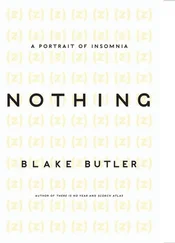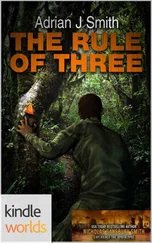Blake Butler
Three Hundred Million: A Novel
“The Part About Darrel” is for Molly Brodak
Every hundred feet the world changes.
— ROBERTO BOLAÑO, 2666
ONE THE PART ABOUT GRAVEY
This word occurs because of god. In our year here god is not a being but a system, composed in dehydrated fugue. Under terror-sleep alive we hear it heaving in and out from the long bruises on our communal eternal corpse, consuming memory. The wrecking flesh of Him surrounds, holds us laced together every hour, overflowing and wide open, permeable to inverse, which no identity survives. As god is love, so is god not love. Same as I could kill you any minute, I could become you, and you wouldn’t even feel the shift. Only when there’s no one left to alter, all well beyond any ending or beginning, can actuality commence.
E. N. FLOOD: This text was transcribed from a white notebook found at the foot of the stairs in the room beneath the home at address  . The original handwriting has been confirmed as that of the home’s owner, Gretch Nathaniel Gravey, a forty-five-year-old Caucasian male, who, at the time of this writing, is being held without bond by the State for an as yet undetermined number of charges of murder in the first degree, as evidenced by the mass of human remains found occupying the same aforementioned basement. It is believed that other victims may exist outside the home, though the total tally and identities of even presently known victims remain uncertain due to the severity of their disfigurement and the intermingling of flesh. Gravey, beyond this document, stands mute .
. The original handwriting has been confirmed as that of the home’s owner, Gretch Nathaniel Gravey, a forty-five-year-old Caucasian male, who, at the time of this writing, is being held without bond by the State for an as yet undetermined number of charges of murder in the first degree, as evidenced by the mass of human remains found occupying the same aforementioned basement. It is believed that other victims may exist outside the home, though the total tally and identities of even presently known victims remain uncertain due to the severity of their disfigurement and the intermingling of flesh. Gravey, beyond this document, stands mute .
He who brought me brightest in the image of the human toward god was a series of shapes I knew as Darrel, though quickly I would come to see that’s not his name. His name had squirmed as any word, appearing burned into the pages of the unholy books composed alone in pens and tongues by men before we were we, beneath a sky propped up with our lunchmeat flab asleep and praying. Each syllable in how anyone would say his name would deform itself depending on whose mouth was being used, and so the name could lace within all language. His name appeared inside all ageless rails of light, invoked malformed in the mouths of all as corporations, entertainments, narcotics, art. But with my human mouth I called him Darrel, after the son I’d never have. I lived with Darrel in the black house for more than thirteen billion years before I ever had a body, years in which the flood of ideas we would erect from incubated and formed blood inside our brains. The ground beneath the dirt of our whole future pressed against everything we wanted, became so thin with all the scraping of the nails and all the one-day-buried no ones and all the nothing waking up in our new bodies in the night, that what was left of the foundation underneath us was something so clear and timeless and deranged we couldn’t feel it, and so wanted it again then even more, and in that wanting wanted every inch of now to produce further lengths to lust for, new skin to seethe inside of. I mean we began again like night again like night again every time we spoke or saw or felt anything. We were not us as we became us but someone else inside of someone else already all once again enslaved to live again as if we never had or known we could. Who we were from that point forward and what we did to all other bodies, to those hours and those men and women and people, was not us but someone we’d met long ago and wed and loved and killed, and buried over and again each time retaining less until there was nothing left to hump, and since then had wholly disremembered in a wish for preservation of daily sanity beyond where now the color of every mind appeared nightly inside my fleshless rest, wielding the knives of all my coming days repeating, and wearing skin made of all mirrors showing anyone but me, the silence of our deleted adoration so grown out all over our reflected faces and down our backs and up our asses we never even had to open our lids or mouth again to let the shape of night fill up our minds.
FLOOD: Whether Gravey is using this opening disorientation voice as a way of disclaiming his own actions I am unsure. He seems sometimes to be speaking directly to the reader, while at other times at you or through you or around you; perhaps, forgive me, inside you. Frequently one gets the sense of several of these modes in play at once. There are as well perhaps still other modes I’ve yet to consider, though I hope that in my exploration of his words I can begin to draw out what lies underneath. Unfortunately, my transcription here removes the context of Gretch Gravey’s particularly mangled/child-eyed/dogshit handwriting, which even after just minutes of staring at gives me a fever .
Having already lived forever now beyond flesh like anybody, I knew I needed actual hands. I needed something I could touch myself with, and so touch others, link their lives. I took the body of a child first, that creature of the widest open brand of devotion. This kid was only one among the millions, arbitrary and impractical as any object is in its design; it could have been you, and maybe was you. Is you now. Like any other costume, then, inside the child’s flesh, I had to absorb his human past; what itching infernal plagues and future lust he was wound up by, all the countless forms of bliss and hell crammed in a person even so young. My presence in him rapidly aged him. A week died with his every wet dream, false skies in all fantasies. Years he felt were, to me, only more wallpaper, phlegm in a baby. The more he grew the more I was him and always had been, and likewise his whole frame of orchestration, every fissure. Quickly he was large enough to want to touch others, to fuck others. Through the full child I began then to see in the eyes of others the asphyxiating spectrums they carried, the hues of their assgrabbery. It was easy to want the spectrums for my own; more color and more color’s color. Inside the child I began to seek out ways in the world I would be granted access to everything not yet public — I began making friends, using prisms and medication and excess giggling as gifts I believed I enjoyed giving. I took part in pornography and vacations. Though more and more, these weren’t enough. No matter which media I perused or substances I ingested or buttons I pushed or hole I inherited, I knew there was something always just beyond my contour, a veil shuddering and vast with the glimmer of mortality all through my gums and tongue continuously, hypercolor with internal wounds of aging. The more I knew I wanted more, the slower time dragged, the more impossible any actual future became as chained to mine. I needed someone less entirely alive than some teen to spread my mechanisms — someone whose brain was already halfway gore, a totem in the house of the human plague that had taken of our spirit so completely, over and over, they could not even feel me making a costume of their organs, their ideas. While on TV I watched the ruin of man go on half-assed in the hands of hilarious dicklickers, I held my place and waited for my promise to reveal the kernel of its cyst, the teething hole through which our becoming could bloat to burst its human frottage.
FLOOD: Boxes of photographs of a recurring child were discovered in a hidden compartment under Gravey’s bed. It was unclear at first if they were evidence of a particular victim, or mementos of his own childhood. The photos seem too recently developed, of contemporary technologies, but the look of the dress and architecture in the photos seem much older. The child doesn’t look much like Gravey, and yet neither does he exactly not look like him when in the dark. As it stands, we have yet to find a body living or deceased who seems a right fit for the child, and none of the other boys in the house remembers anyone like him coming among them. In the photos, the child seems happy, even pleasant, though, oddly, in none of the pictures are his eyes open .
Читать дальше

 . The original handwriting has been confirmed as that of the home’s owner, Gretch Nathaniel Gravey, a forty-five-year-old Caucasian male, who, at the time of this writing, is being held without bond by the State for an as yet undetermined number of charges of murder in the first degree, as evidenced by the mass of human remains found occupying the same aforementioned basement. It is believed that other victims may exist outside the home, though the total tally and identities of even presently known victims remain uncertain due to the severity of their disfigurement and the intermingling of flesh. Gravey, beyond this document, stands mute .
. The original handwriting has been confirmed as that of the home’s owner, Gretch Nathaniel Gravey, a forty-five-year-old Caucasian male, who, at the time of this writing, is being held without bond by the State for an as yet undetermined number of charges of murder in the first degree, as evidenced by the mass of human remains found occupying the same aforementioned basement. It is believed that other victims may exist outside the home, though the total tally and identities of even presently known victims remain uncertain due to the severity of their disfigurement and the intermingling of flesh. Gravey, beyond this document, stands mute .










